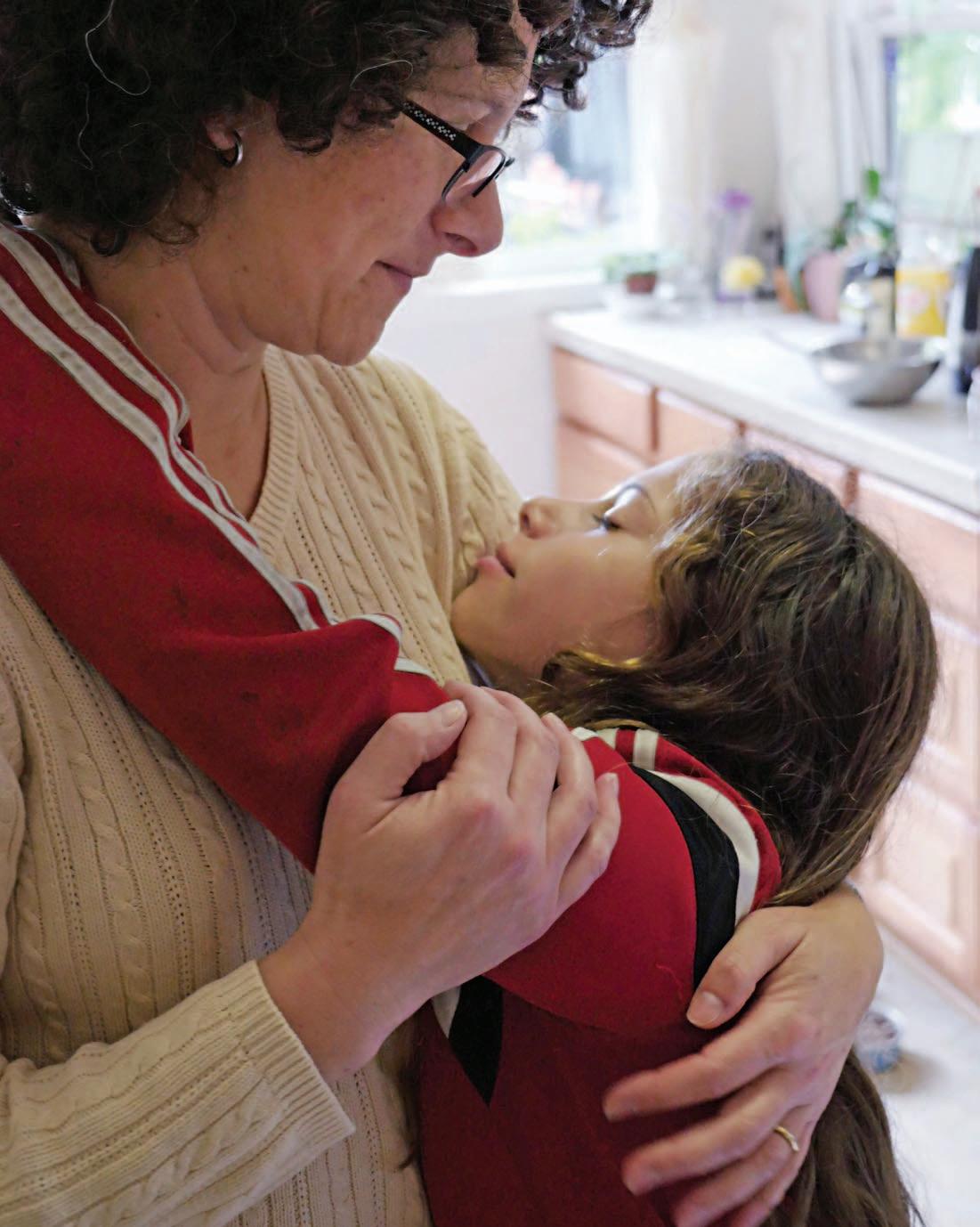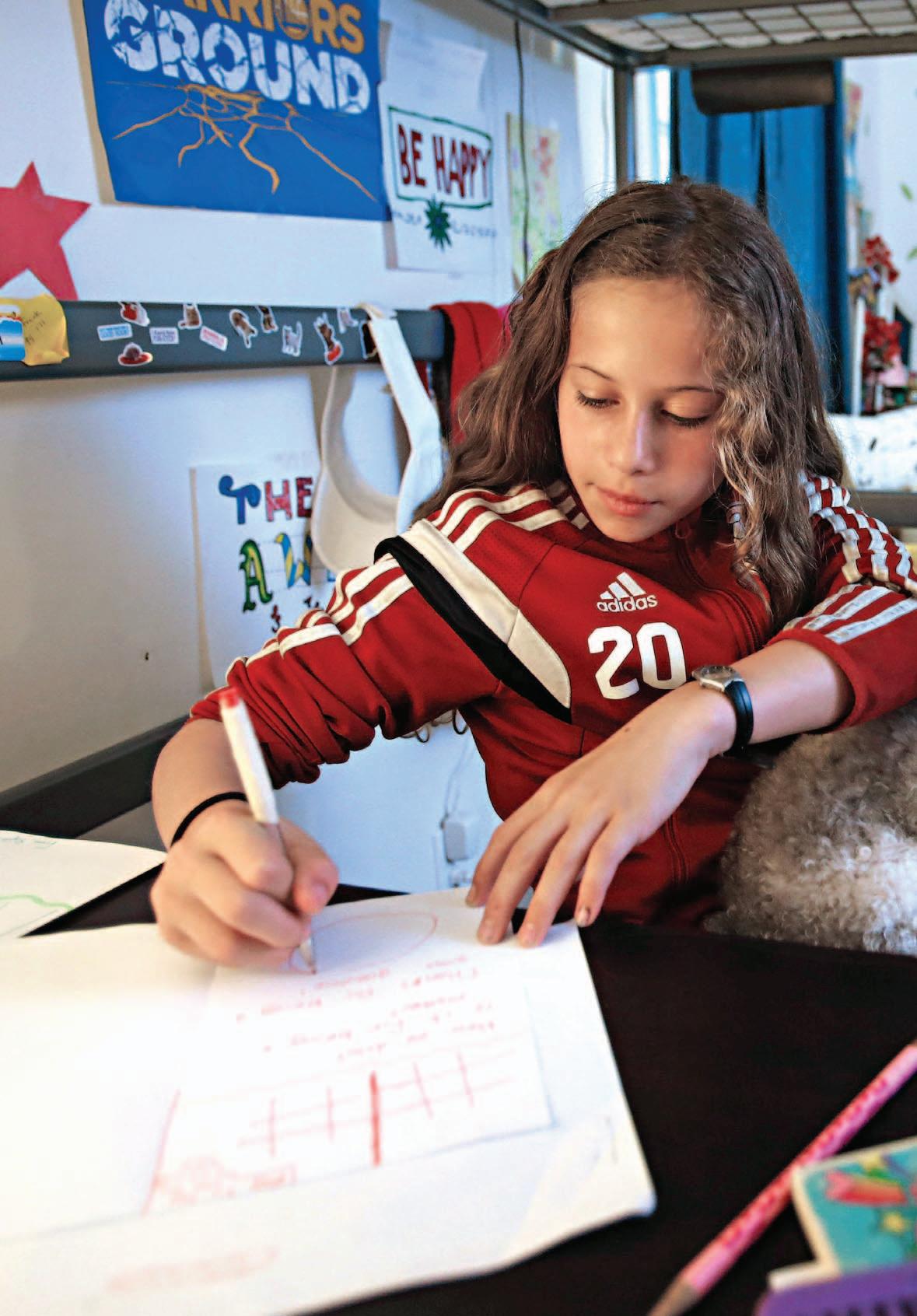
3 minute read
TWEEN spirit
Are the tween years as awkward as popculture suggests?Kidssay no, andthink that thestereotypemay stem from adults’misunderstandingof theage.
STORY BY KAREN D’SOUZA
PHOTOGRAPHS BY JIM GENSHEIMER
Too old for Play-Doh and finger paint but too young for angst or rebellion. Still little enough to scoop up in your arms but far too big to put up with the indignity
Welcome to the realm of tweendom, those in-between years when kids — and their parents often feel unsure of how to proceed.
Movies and television (remember “Lizzie McGuire”?) usually portray this tender time as awkward, full of braces, cringing and middle school drama. While some young people may bask in the glow of finally hitting double digits, others find the tween years often described as ages 10 to 12 as long indeed.
Either way, many who are actually part of that demographic don’t exactly embrace the term “tween.” Sophia Schilb, for one, doesn’t like to be defined by labels. The San Jose 12-year-old thinks the whole concept is just a silly stereotype made up by the media.
“I don’t think I’m a tween. I think I’m me,” Schilb says. “I’m a kid.”
Others believe the tween years are perceived to be awkward largely because of society’s expectations.
Sophia Klein, for example, says that she and her BFFs often put on airs and act older than they are to make other people feel more comfortable
“My friends and I act like we’re older to avoid it being awkward,” says the bubbly Oakland 10-yearold with her own YouTube channel, dubbed SophiaSwag 101, where she regales viewers with tales of beauty, art and cuteness. “But sometimes I wish that I could be older because I feel like I am on the edge of being a kid, and I want to be more sophisticated”
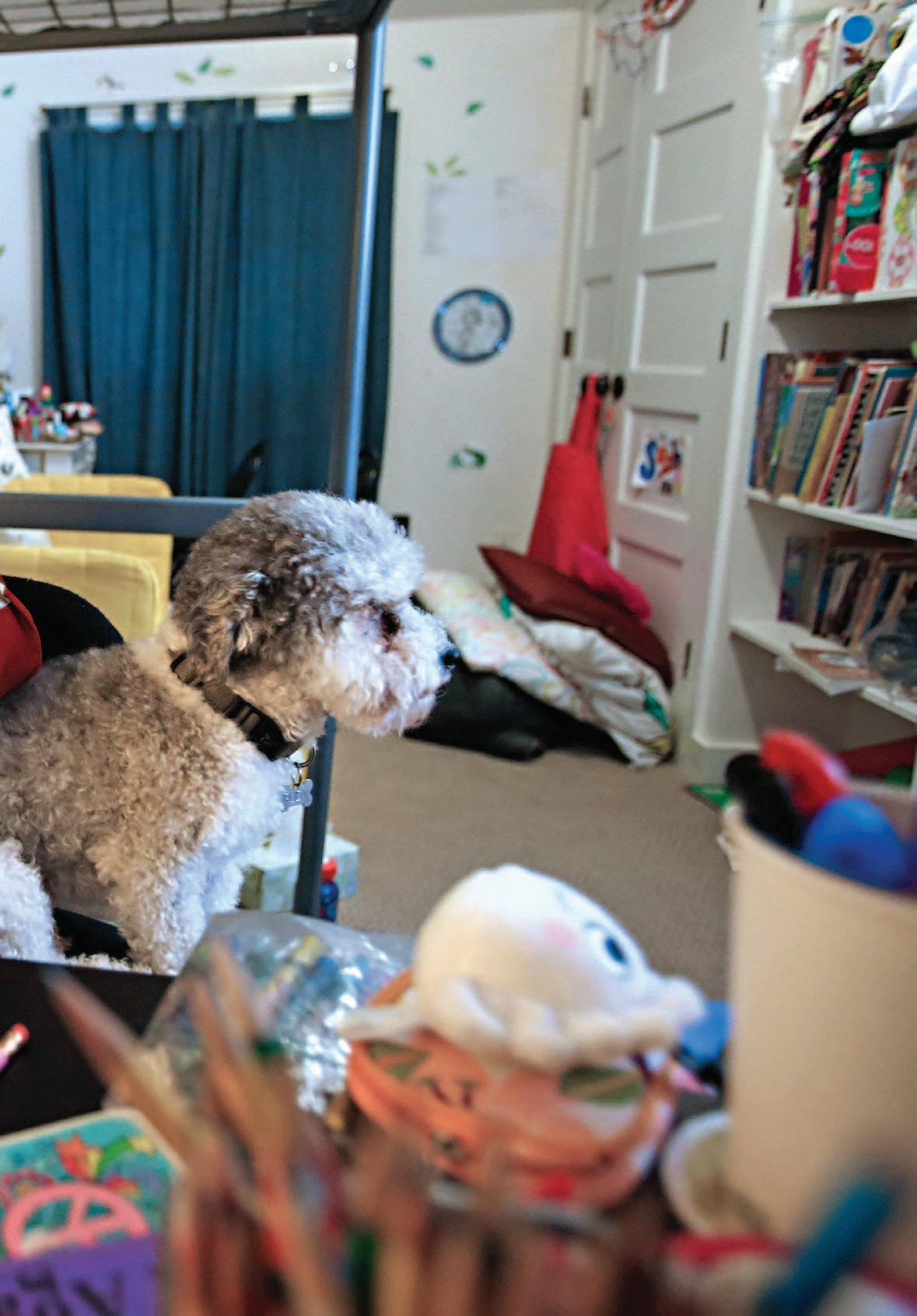
Her mother, Lisa Beyer, agrees.
“The awkward tween seems mostly a cliche to me these days, although I recall feeling and being very awkward when I was Sophia’s age,” Beyer says. “Sophia and her cohorts really don’t seem awkward in their intellect, behavior or appearance. There can be awkwardness, however, in how we adults interact with tweens, finding the right (or wrong) spot on the kid-to-teen spectrum in various situations”
Defining Who You Are
when your identity is in flux can be tricky Schilb says the best way to avoid feeling like you don’t fit in is to be fully engaged in life.
“I like to be up and about. I don’t like to be sitting around staring at a phone. I don’t even have a phone,” she says, sitting cross-legged on a chair. “I have lots of things to do.”
While some kids may feel overbooked with all the various “enrichment” activities children are expected to take part in these days, be they sports or clubs or volunteer work, Schilb says staying active keeps her from getting stressed out. This way, too, she doesn’t have all her eggs in one basket
“It helps to be part of things that are bigger than you,” she says “I’m so involved in my extracurriculars, I don’t get sucked into all the drama at school.”
For her, that means dividing her off time between soccer, theater and dance She’s an old hand at Children’s Musical Theater San Jose, where she has performed in eight shows over the years Her experience there has helped her acquire poise and focus she can apply to other parts of her life.
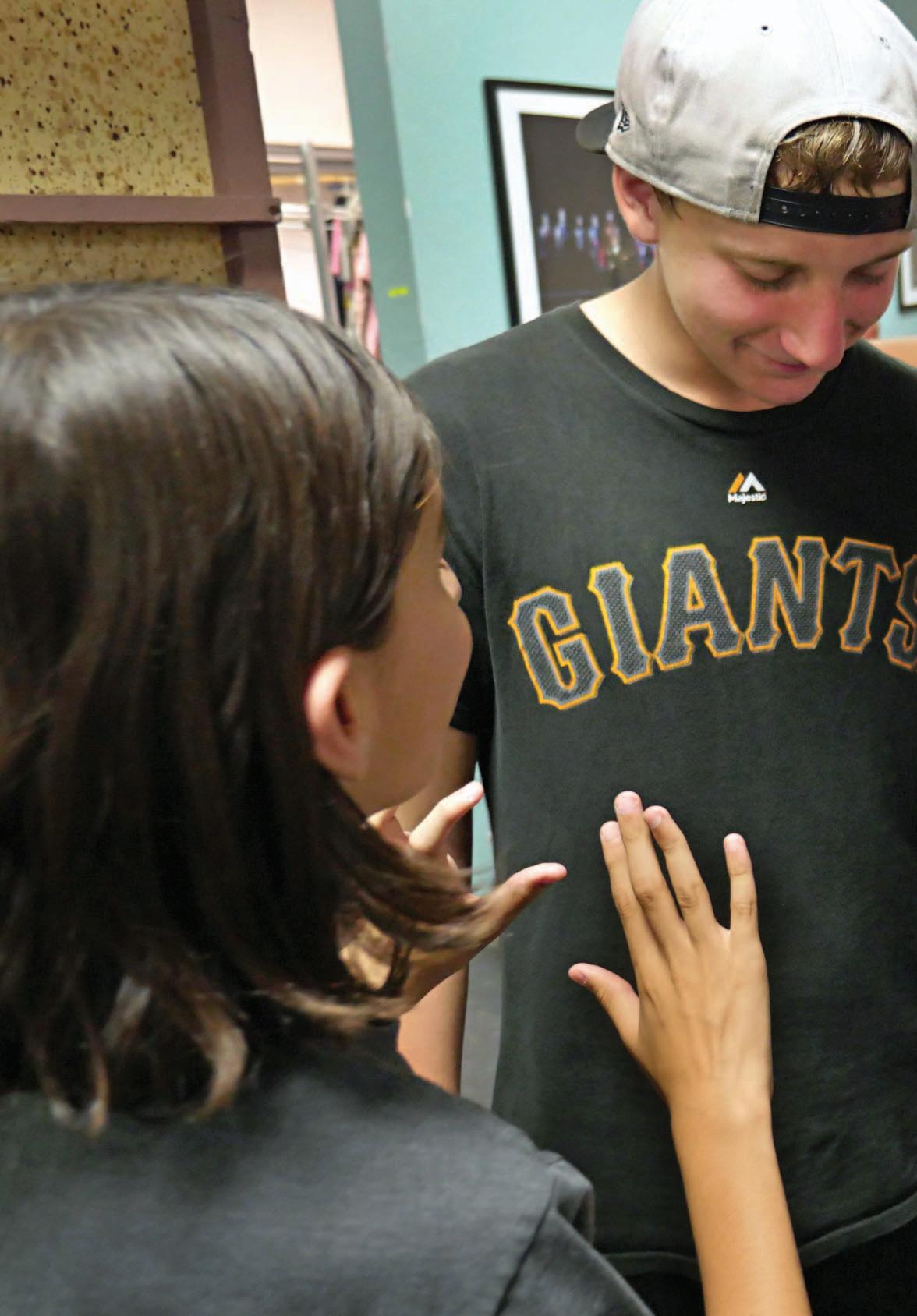
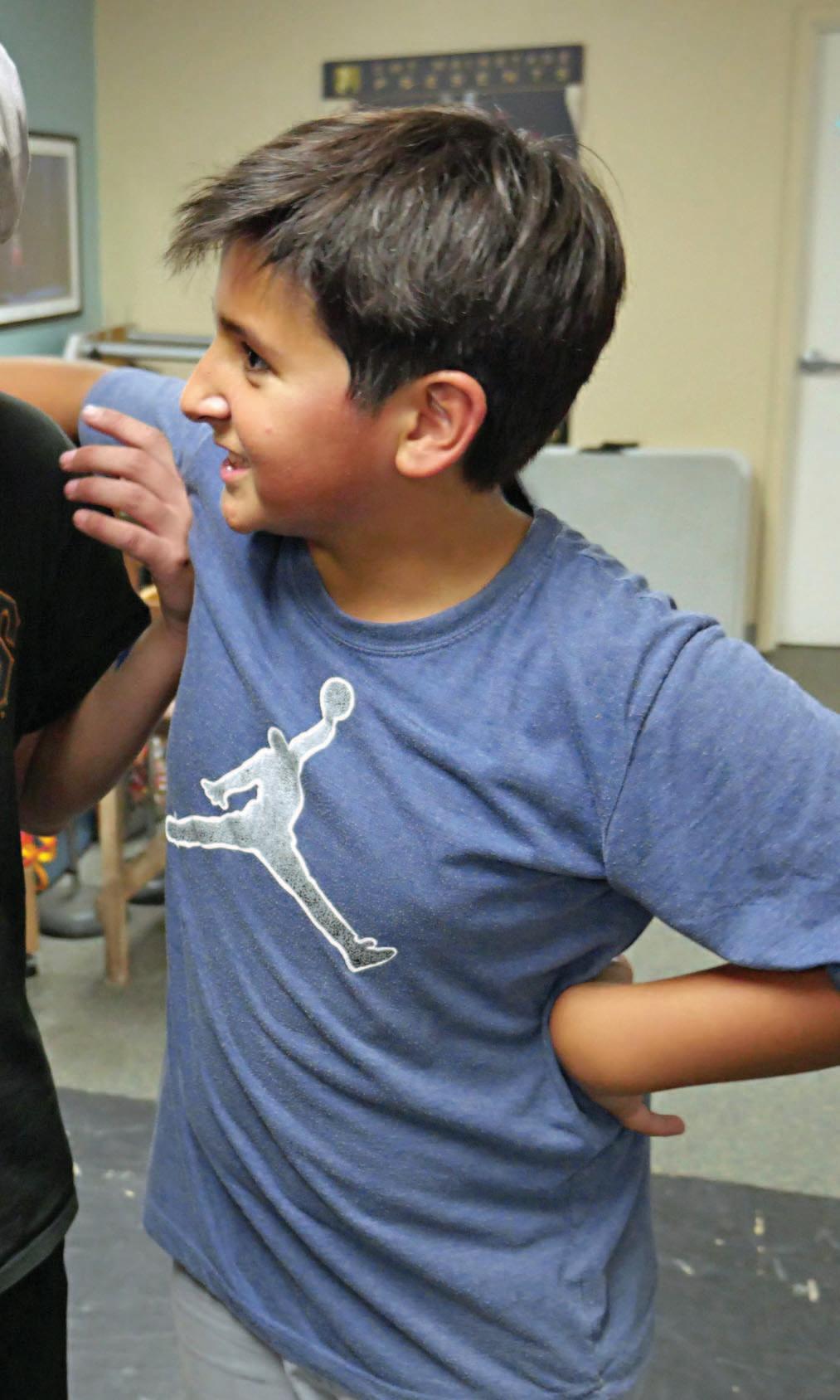
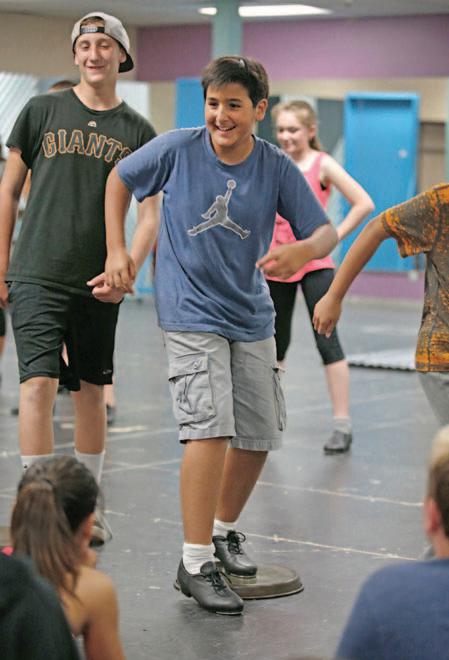
“For me, it’s a way to have more connections and to have more people who get you,” she says. “Having confidence really helps you feel better”
THAT MAKES A LOT OF SENSE to Armando Gonzalvez. The 12-year-old from Cupertino wisely points out that tweens aren’t the only ones who can have a tough time figuring out who they are Learning and growing can be confusing no matter if you are 14 or 40.
“As far as I can tell, lots of people feel awkward for one reason or another,” says Gonzalvez, who is fond of theater and filmmaking He says he feels comfortable with who he is right now, and he’s not worried about being someone else. He’s certainly in no rush to start high school, because he’s heard the homework load is intense.
“I’m a kid. I’m a boy. I like video games,” says Gonzalvez, a glint of mischief in his eye.
Tweens have a lot of different ways of coping with life’s bumps. Klein gets a lot of joy from playing soccer, and she turns to her parents for comfort. “My parents make me feel better,” she says, “so I like to go to them.”
Klein also offered some words of advice for younger kids who may be anxious about entering their tweens.
“I would tell them to never give up, because everyone around their age might be going through the same thing ”
KDSOUZA@BAYAREANEWSGROUPCOM
Sophia Klein hugs her mother, Lisa Beyer, at their home in Oakland “My parents make me feel better,” Sophia says, “so I like to go to them.”
